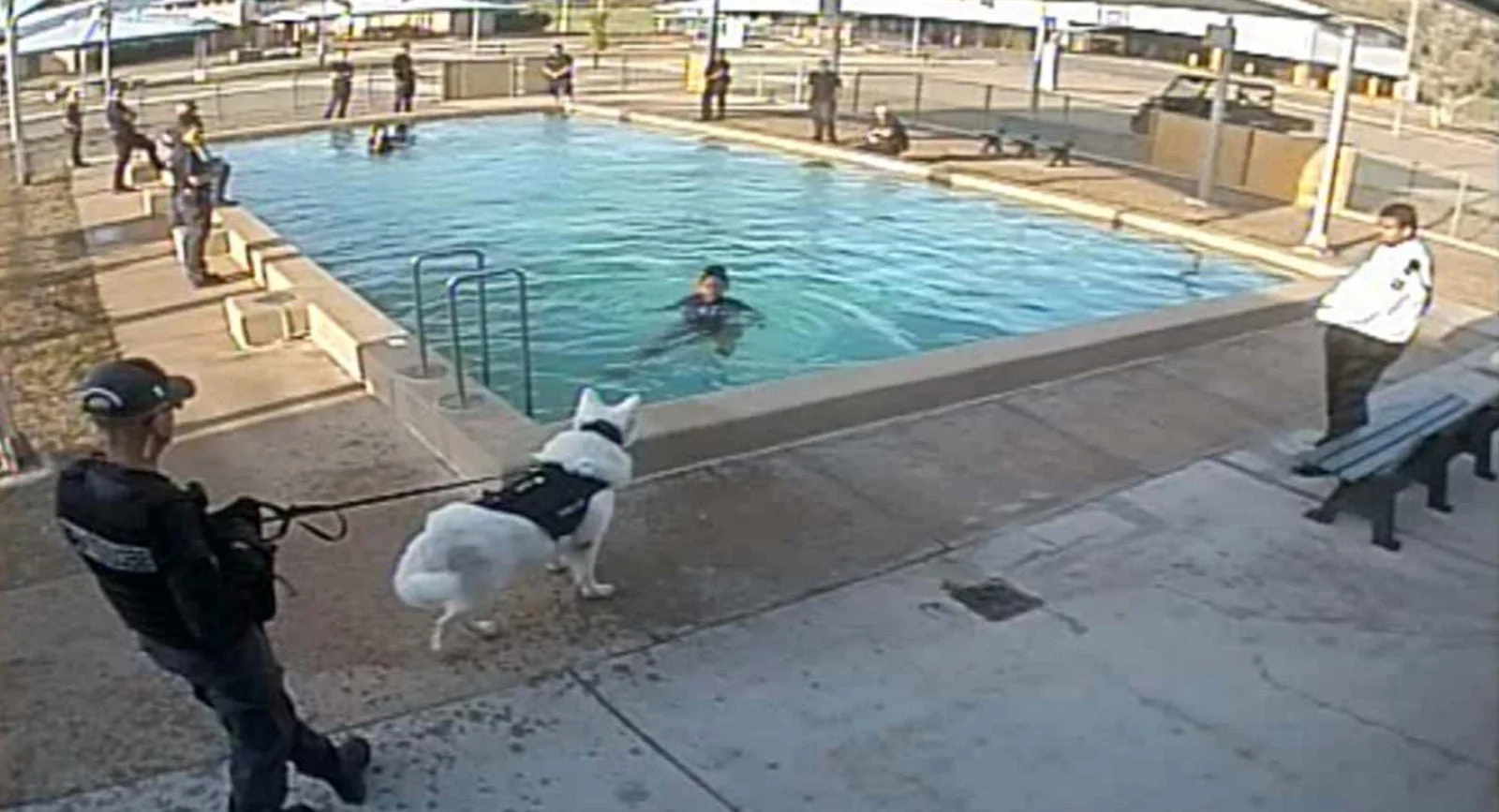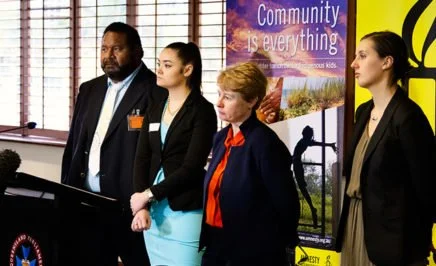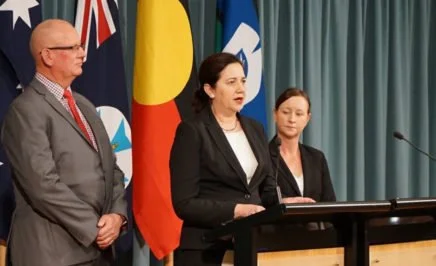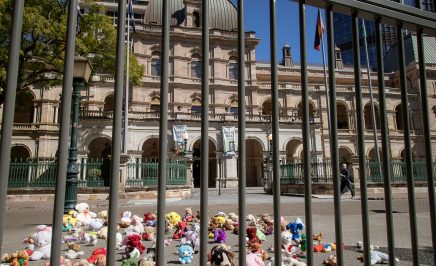Amnesty has published new research that shines a light on kids in Queensland’s justice system. Campaigner Roxanne Moore lays down seven things you may not know about kids, courts and prisons in Queensland.
1. There’s evidence of abuse in Queensland children’s prisons
The abuse in Don Dale detention centre, Northern Territory, received widespread coverage in July, however Amnesty has also uncovered incidents of abuse in Townsville and Brisbane youth detention centres.
Under freedom of information laws, we uncovered abuse at Cleveland detention centre, Townsville, and a Brisbane detention centre, including:
- staff stripping the clothes off children at risk of self-harm
- use of prolonged isolation, including eight Aboriginal kids held up to 22 hours a day for 10 days
- the handcuffing of kids during physical exercise and family visits
- the use of dogs to intimidate children.
- Four incidents of kids suffering fractured wrists from control and restraint techniques.
Just this week, new footage emerged of a 17-year-old boy being hooded in a Brisbane adult prison.
2. 17-year-olds in Queensland can be sent to adult prisons
On the point of a 17-year-old being in an adult detention centre: in Queensland 17-year-olds are tried as adults and sent to adult prisons.
This is despite the fact that you’re technically still a child – without even the right to vote. Queensland is the only place in Australia to do this.
In Queensland, 17-year-olds are tried as adults and sent to adult prisons. Queensland is the only place in Australia to do this.
Adult prisons are different to children’s prisons. You have less rights and privileges, including basics like owning a toothbrush, or access to education and family.
It’s a breach of children’s rights and needs to stop immediately.
3. Queensland locks up more 10 and 11-year-olds than anywhere else in Australia
Did you know that in Australia, kids as young as 10 are sent to prison? This flies in the face of international standards – kids must be at least 12 before being sent to prison.
Queensland locks up more children aged 10 or 11-years-old than any other state or territory. And, 71 per cent of kids aged 10 to 12 in Queensland detention were Aboriginal and Torres Strait Islander.
Queensland locks up more children aged 10 or 11 years old than any other state or territory.
There’s stacks of evidence that detention for kids is harmful. If we want to help these kids, then a much better option is providing community-based support that helps them deal with issues in their lives.
4. 83% of all children in detention in Queensland are on remand
‘On remand’ means a child is locked up before their trial or sentencing. This happens if a police officer or magistrate decides that a child should not be given bail. Bail is an agreement that, as long as you follow certain conditions, you can stay out of prison until you are found guilty and sentenced.
With 83 per cent of children in Queensland prisons being on remand, it’s clear that the bail system isn’t working properly. It’s also worrying that so many of them are Aboriginal and Torres Strait Islander children – 61 per cent of kids on remand.

Detention should always be a last resort for children. The Human Rights Committee has said that “pre-trial detention of juveniles should be avoided to the fullest extent possible.”
The Queensland government needs to look into why this is happening. We have figured out a few reasons including:
- kids needing better access to lawyers, including culturally appropriate lawyers
- need for more bail accommodation that’s safe and culturally appropriate
- increasing delays in court proceedings.
5. 65% of kids in Queensland prisons are Indigenous
Aboriginal and Torres Strait Islander children make up 8 per cent of the total youth population, but about two thirds of kids in prison (65 per cent). This means that one in every 68 Indigenous kids in Queensland will be sent to detention.
If you’re an Indigenous girl in Queensland, you are 33 times more likely to be sent to prison than a non-Indigenous girl. Between 2014-2015, 71 per cent of all girls in Queensland detention were Indigenous.
If you’re an Indigenous girl in Queensland, you are 33 times more likely to be sent to prison than a non-Indigenous girl.
These kids don’t start on an even playing field. Indigenous kids are born with a higher chance of experiencing racism, trauma and violence, to abuse substances, be absent from school or removed from their families, and to have a disability or mental illness. These factors make Aboriginal and Torres Strait Islander kids far more likely to end up in prison.
6. Aboriginal and Torres Strait Islander communities hold the answers
Our research shows that there are many Aboriginal and Torres Strait Islander leaders fighting for change in their communities and for a brighter future for their kids.
Indigenous kids need Indigenous support. Having Aboriginal and Torres Strait Islander run programs means that the people delivering the services understand what these young people are going through, and are able to reconnect them with their culture, identity and community so that they are stronger going forward in their lives.
Indigenous kids need Indigenous support.
Aboriginal and Torres Strait Islander led programs are working to pull Indigenous kids out of the quicksand of the justice system.
7. But only two out of the 16 funded diversionary or prevention programs in QLD are Indigenous-led
If we want to change the status quo, if we want a fair and equal country, then the first step is our government to start listening to the many courageous Indigenous people out there.
If we want to change the status quo, if we want a fair and equal country, then the first step is our government to start listening to the many courageous Indigenous people out there.
Take Randall Ross, who is passionate about keeping kids strong with cultural roots, but now needs financial support. Or the Mona Horsemanship program, which is helping Mt Isa kids lead healthy lives, but needs help building their administrative capacity.
Change is possible – we just need both sides of politics to recognise the power of Indigenous-led solutions in addressing the over-representation of Aboriginal and Torres Strait Islander children in the justice system.
For a full list of recommendations to the government, read Amnesty International’s research report, “Heads held high”: Keeping Queensland kids out of detention, strong in culture and community.




